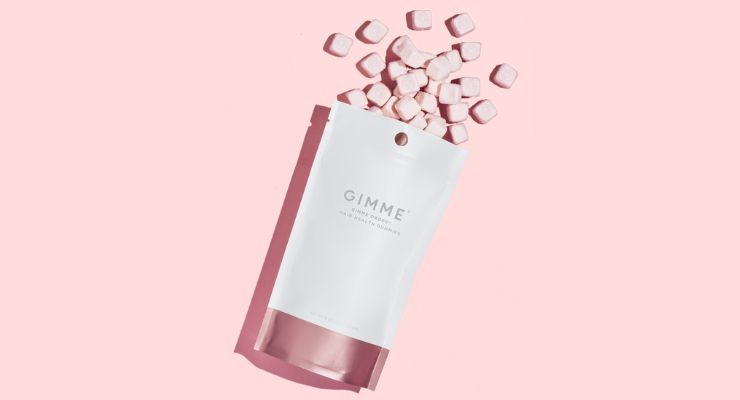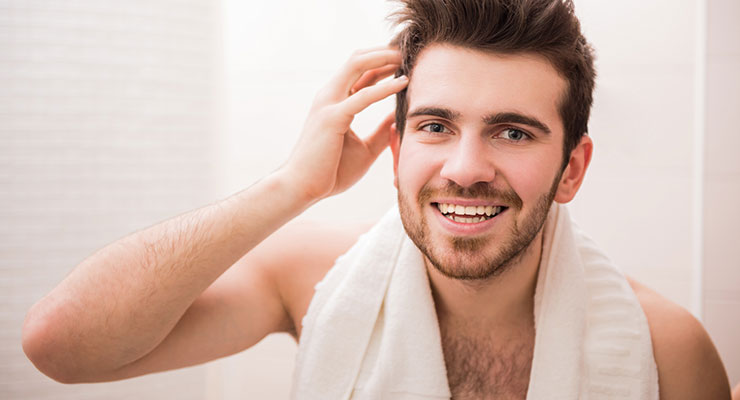Features
Beneath the Surface: Delivering Beauty Benefits with Proven Functional Ingredients
Ingestible products for skin, hair, nails, and more appeal to a substantial consumer base.

By: Sean Moloughney
Editor, Nutraceuticals World

Demand for health and nutrition solutions that address or prevent age-related ailments continues to accelerate, especially as people grapple with stress and global uncertainty.
With deep roots in Asia, the market for ingestible beauty products has proliferated around the world with dietary supplements, fortified foods, and nutritional beverages that target, for example, skin, hair, and nail health.
Collagen has perhaps been the most recognized and sought-after ingredient for ingestible beauty products, which are sometimes referred to as nutricosmetics, a term with no regulatory definition.
Overall, consumer research indicates people connect diet and active lifestyles to overall wellness, including appearance. “The demand for healthy aging is expanding into broader demographics from seniors to the middle-aged and Millennials,” Michelle Teodoro, Mintel’s global food science analyst, noted in a blog post in April. “This is driven by the rise of preventive health and heightened self-care and active lifestyle practices. Mintel research shows that about 7 in 10 consumers in Australia and New Zealand agree that a healthy diet can be more beneficial to skin/hair than the products you use.”
Alongside collagen, the catalog of dietary ingredients that may offer beauty benefits has grown, as research continues to validate efficacy.
Product formats are also diversifying. Traditional tablets, capsules, and softgels have become more sophisticated to meet demand for “clean labels,” while also delivering and releasing an effective dose at the right time and place in the gastrointestinal tract.
Meanwhile, gummies have grown to be a darling in the dietary supplement world. Gimme Beauty, a hair care solutions brand popular on Instagram, recently debuted Gimme Drops hair health gummies that blend biotin (vitamin B7) with argan oil along with essential vitamins and minerals.
Notably, the pectin-based gummies are vegan, “cruelty-free,” and are free of the top eight allergens. The natural strawberry flavored gummies also contain 3 grams of sugar per serving (2 gummies).
Gimme Beauty’s vision is to design innovative hair solutions that disrupt the status quo of the health and beauty hair care category. Since it launched in 2006, Gimme Beauty has become a national brand available at more than 20,000 stores across the U.S.
Innovative and convenient formats like shots, powder stick packs, sachets, gels, oral strips, and more continue to respond to consumer demand for novel supplement products.

A ‘New Generation of Skin Care Consumers’
Demand for ingestible skin care products is growing as consumer attitudes shift, according to a survey sponsored by global wellness company Lycored. The survey included 490 consumers in the UK and France who had purchased a skin care product (either topical or ingestible) over the past 12 months. Designed to explore attitudes about beauty and skin health, the survey revisited questions that Lycored had previously asked five years ago, and found that much had changed.Three in 10 (30%) of those surveyed had purchased an ingestible skin care product over the past year, up from 14% in 2017. This routine was particularly high among people aged 25-34 (57%) compared to 16% of people aged 55-64.
The survey suggested that growing demand for beauty-from-within is rooted in increasingly holistic, health-focused attitudes about skin care. Seven in 10 (70%) of the survey respondents said they used skin care products to keep their skin healthy; 69% said it was “to feel good about myself.” This feel-good factor was particularly evident among consumers in the 18-24 age bracket—82% of whom said they used products to feel good about themselves—and women (78% compared to 59% of men).
By contrast, more cosmetic goals were not highly sought. Only 14% of consumers surveyed—and just 6% of those over 65—said looking young was important to them, and only 17% said they used skin care products to look attractive to others.
“The new generation of skin care consumers is much more interested in holistic skin health than traditional cosmetic signs of beauty,” said Caroline Schroeder, marketing communications manager at Lycored. “This focus on ‘from within’ factors has increased in recent years, especially during the pandemic, during which many consumers have valued overall health and self-care more than outward appearance. It’s a major reason for the boom in demand for ingestible skin care.”

Broadening the Consumer Base
With demand for “beauty foods” on the rise, innovative brands should consider broader consumer groups, including men, and go beyond beauty to address gender-specific needs, according to Megumi Matsunaga, consultant at Euromonitor International, which released its “Functional Food: Targeting Beauty and Beyond” report earlier this year.“Skin care in particular is developing on a global level and packaged food products with skin health claims are becoming increasingly prevalent. Globally, the number of SKUs claiming skin health grew by 53% from 2019 to 2020,” Matsunaga noted. “Products supporting hydration are also continuing to emerge, and grew by 11% in 2020. Antioxidants, which provide wider health benefits, including skin and heart health, are more commonly used as a health claim in packaged food. As consumers’ attention to beauty through food increases, switching the claim from antioxidant to beauty-related claims when applicable, helps brands to differentiate.”
Notably, demand for men’s skin care products is increasing around the world, she added. Euromonitor’s 2021 Beauty Survey showed that the ratio of male consumers using skin care products, such as facial moisturizers and face masks, has increased rapidly since 2016. “In 2021, globally, 50% of male consumers are using facial moisturizers at least 1-3 times a month, and 38% of them use them daily,” Matsunaga said.
Overall, skin health remains a top objective that consumers are looking to address with ingestible products in the beauty category, said Sébastien Bornet, vice president of global sales and marketing at Horphag Research.
“Quality ingestible products empower consumers to address skin health needs holistically when paired with a topical,” he added. “It’s beauty from the inside-out. During seasonal transitions, such as summer to fall, consumers are looking for products that can protect the skin from humidity and temperature variations. Thus, consumers are looking for ingredients, like Pycnogenol French maritime pine bark extract, that can enhance blood microcirculation in the skin, which results in an optimal supply of all important nutrients as well as better hydration to support skin vitality.”
Bornet continued by noting that consumers often look for proof points and clinical validation demonstrating safety and efficacy. “With a quick online search, consumers can dig deeper into each ingredient in their beauty products. They are also learning more about using oral and topical products in tandem. We see younger consumers entering the skin health market to treat specific concerns, like dark spots or dryness. However, as they become more educated, they find science-backed ingredients, like Pycnogenol, can complement a preventative approach to keep their skin glowing, hydrated, and youthful throughout life.”
Demand for bioactive ingredients in nutricosmetic products that are natural, clean label, and supported by science has increased among consumers and brands, according to Bryan See, vice president of PhytoGaia, which recently launched STGaia (OS), a fat-soluble palm phytonutrient complex consisting of natural squalene and full spectrum tocotrienol complex (alpha-, beta-, gamma- and delta-tocotrienol, touted as “super vitamin E”).
“We developed STGaia 25/20% OS specifically for oral beauty as well as topical cosmetics,” said See. “Squalene is widely used in topical cosmetic products for its beneficial skin effects. Tocotrienols, on the other hand, have a significant body of scientific evidence for skin nutrition and anti-aging properties. Squalene and tocotrienols are used widely, individually, in topical and oral cosmetics products, but not in combination. Hence, STGaia is the first natural, plant-based branded complex to combine these two synergistic phytonutrients together as a complex. The science points to an excellent fit for an oral beauty product or topical cream for this novel synergistic branded ingredient.”
Healthy Hair Care
While skin health has been a focal point in the beauty from within market, ingestible hair care represents an opportunity for brands to target men and women.One in five global consumers have concerns about thinning hair, according to Euromonitor International’s Voice of the Consumer: Beauty Survey, fielded June to July 2021.
“Both proactive and reactive approaches are effective to prevent thinning hair and hair loss. Although common causes of thinning hair and hair loss are hormone-related, nutrition such as protein, biotin, vitamins A, B, C, zinc, and iron can help maintain healthy hair levels,” said Matsunaga.
Hair loss can have many causes, according to Teodoro, “such as stress, health issues (e.g., diabetes), genetics, age, or improper nutrition in one’s diet (e.g., deficiency in certain nutrients). Mintel data shows that 53% of Indian consumers would be interested in beauty supplement products that can prevent hair fall and support healthy/strong hair, while 64% of Chinese consumers are interested in nourishing claims in hair care products.”
Given the strong consumer interest in hair health, this will continue to be a category ripe for innovation. “Brands can demonstrate how food, drink, and supplements for hair loss are the next natural step beyond topical remedies,” Teodoro suggested, “or explore nutrients and ingredients that are proven to be multifunctional and support both physical and hair health.”


